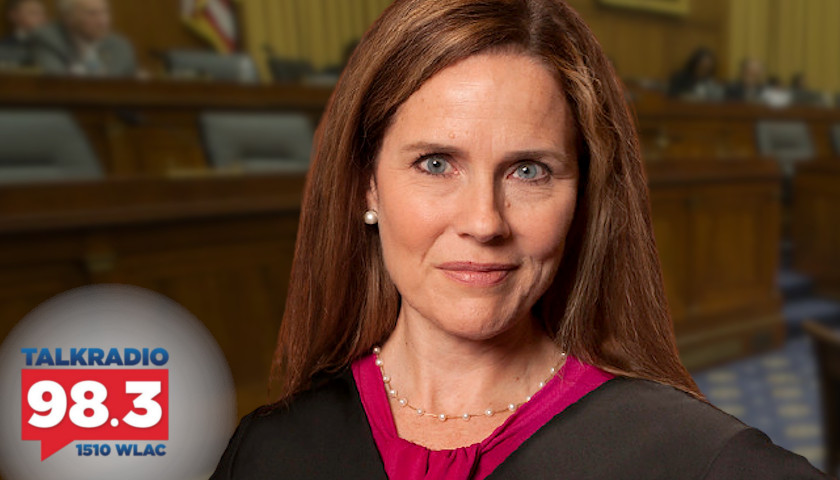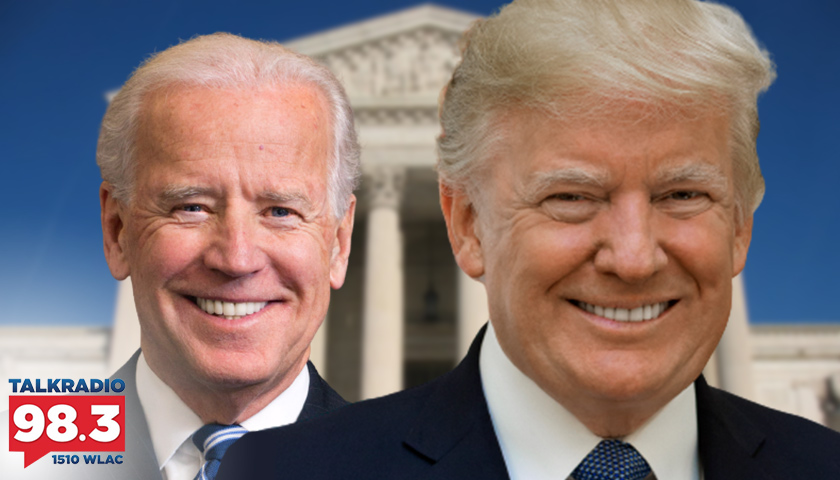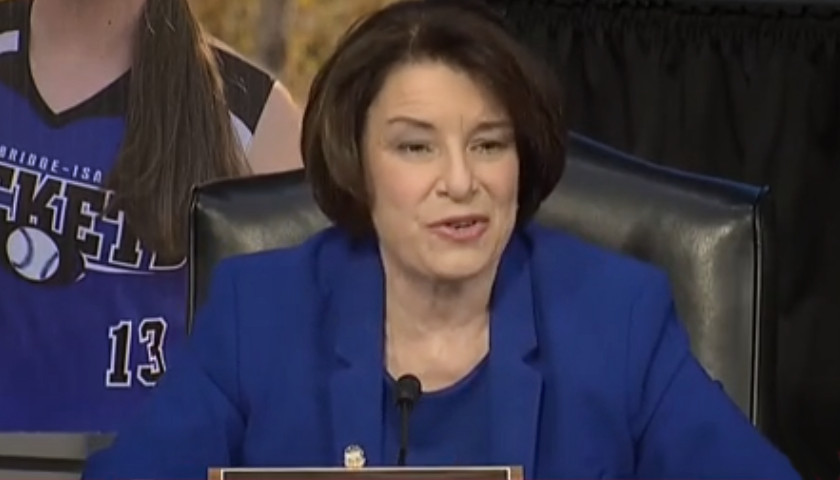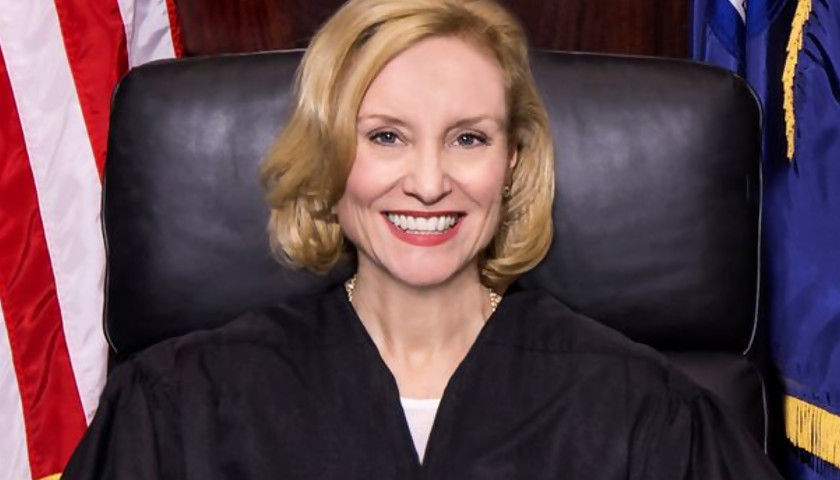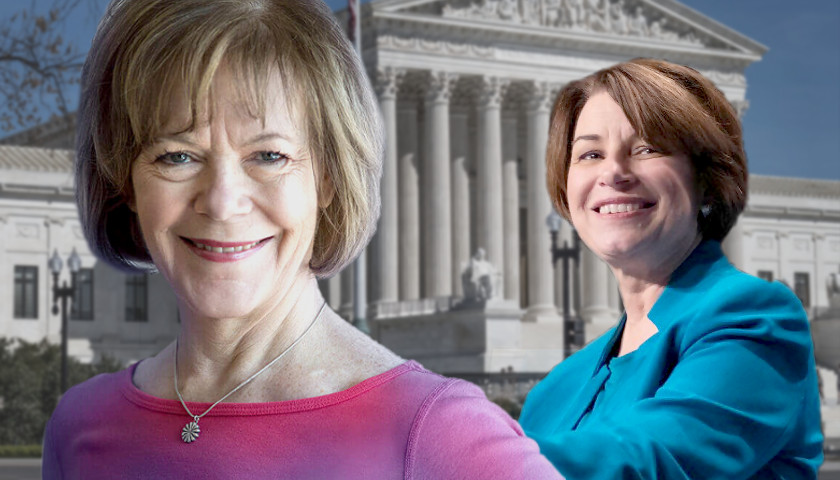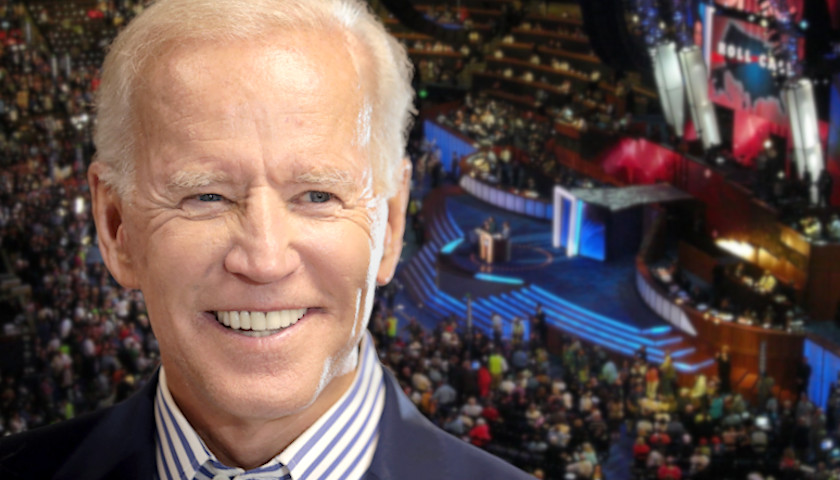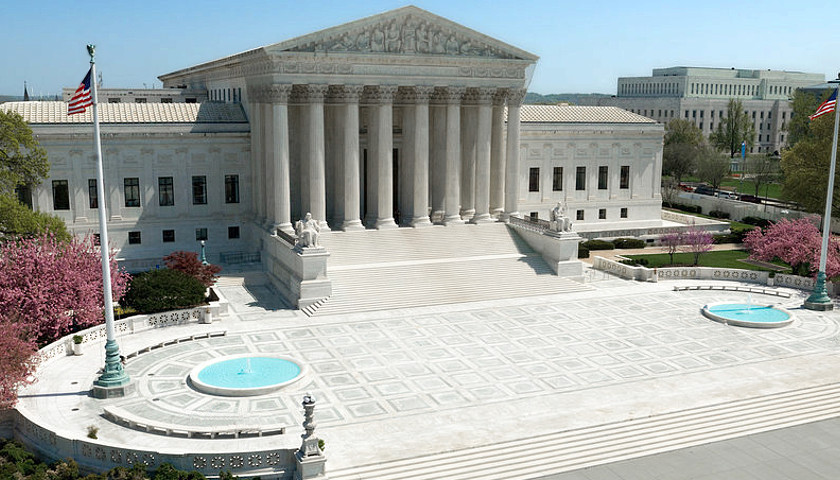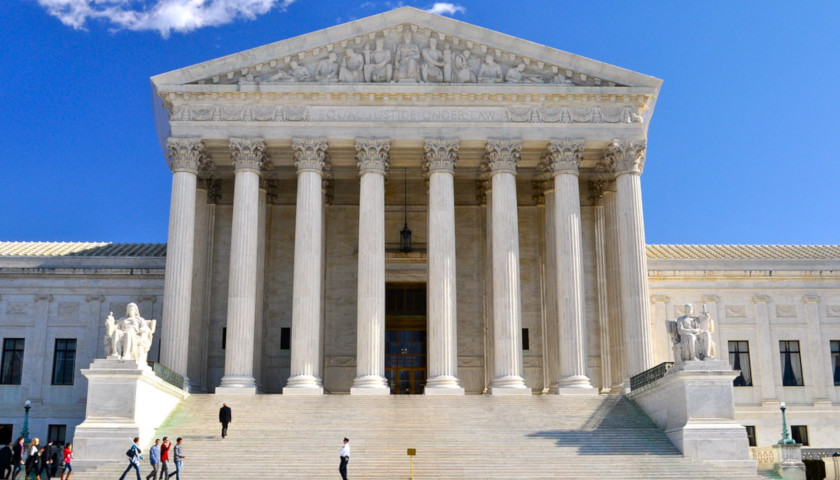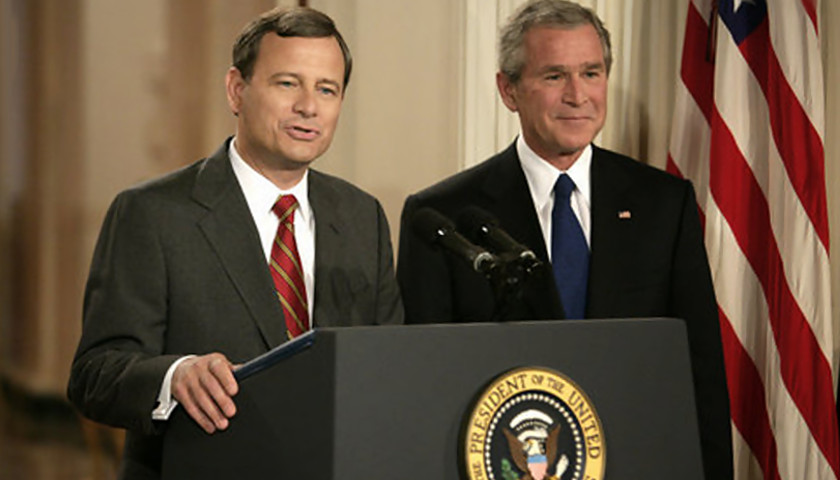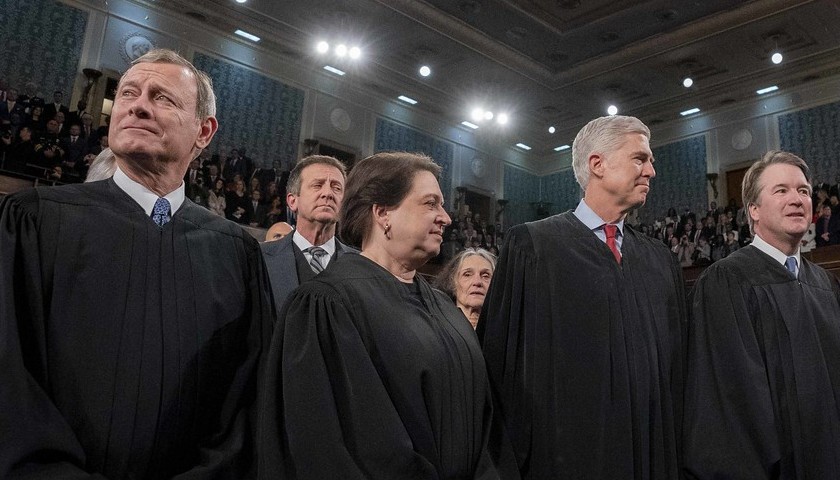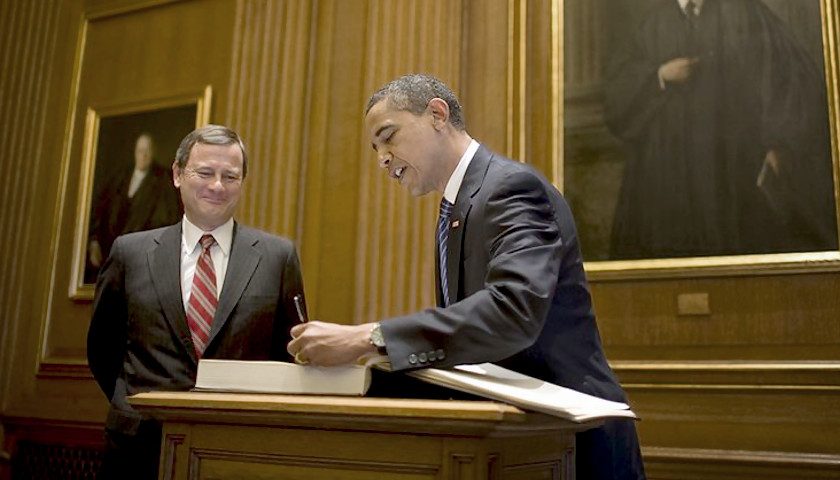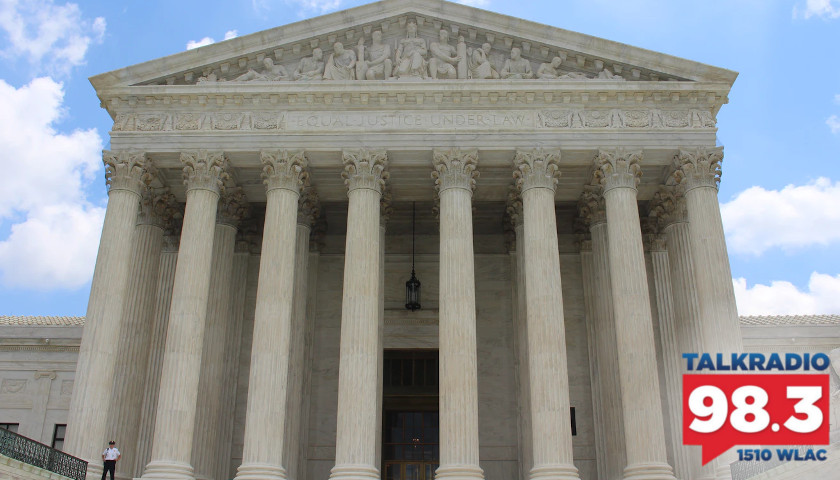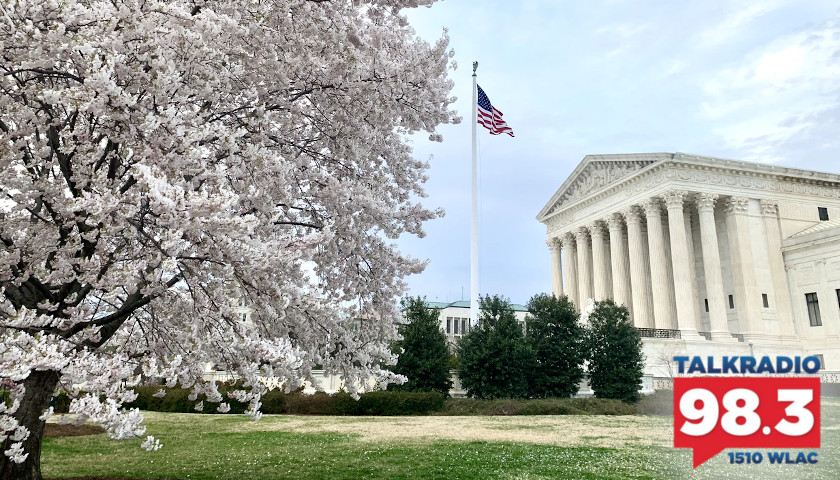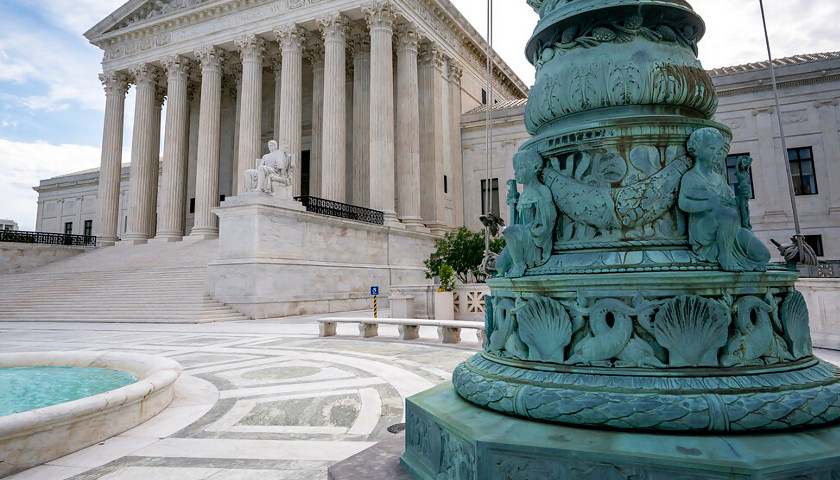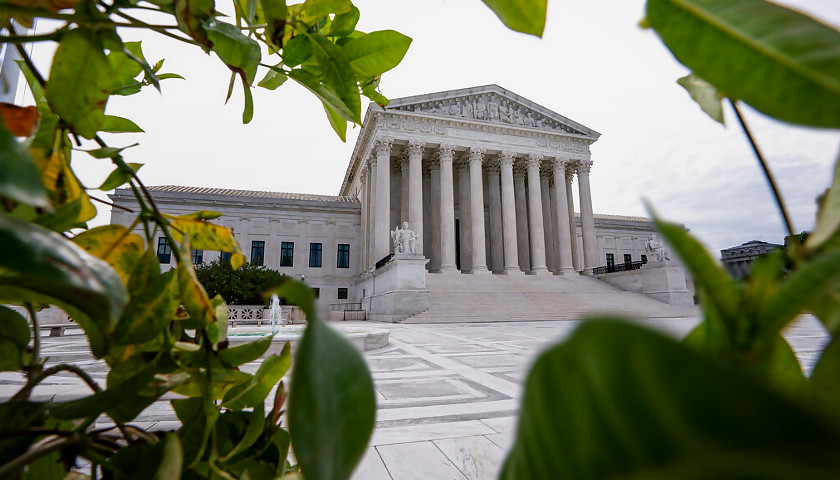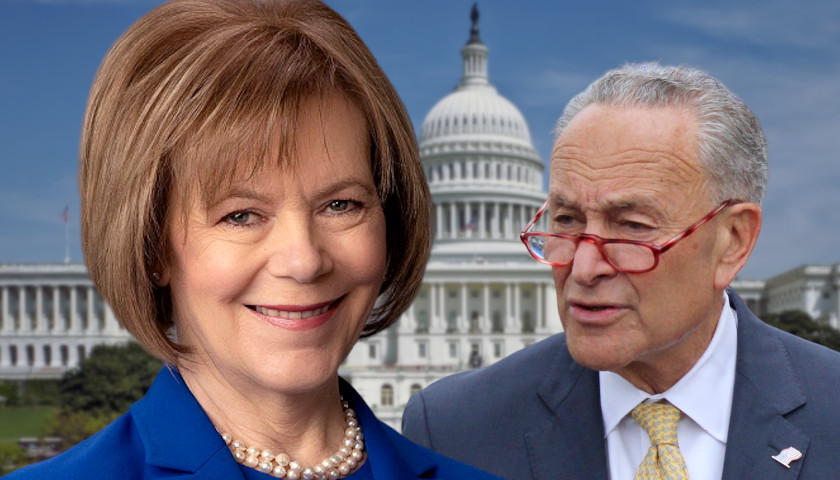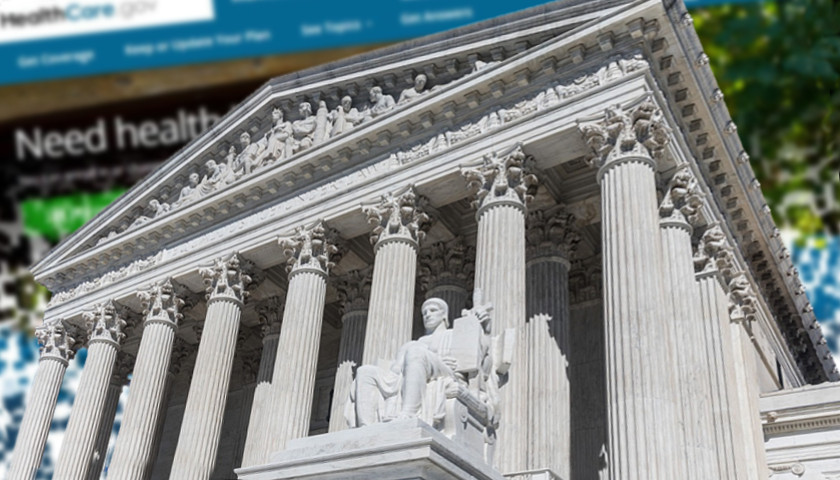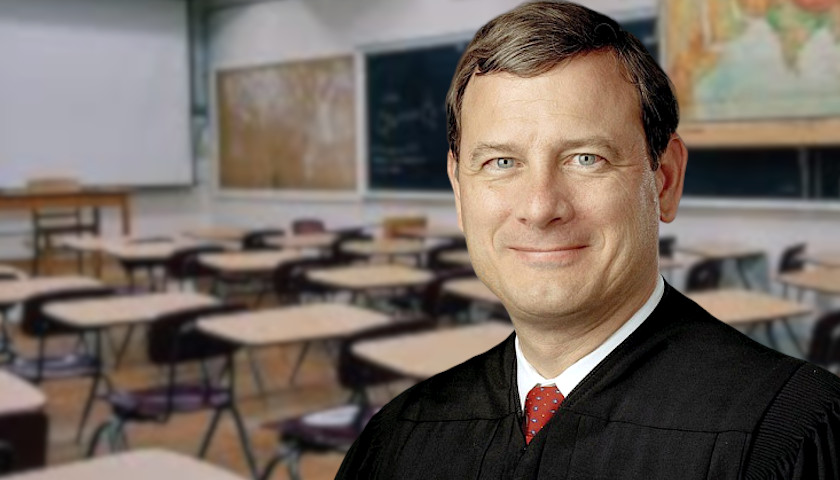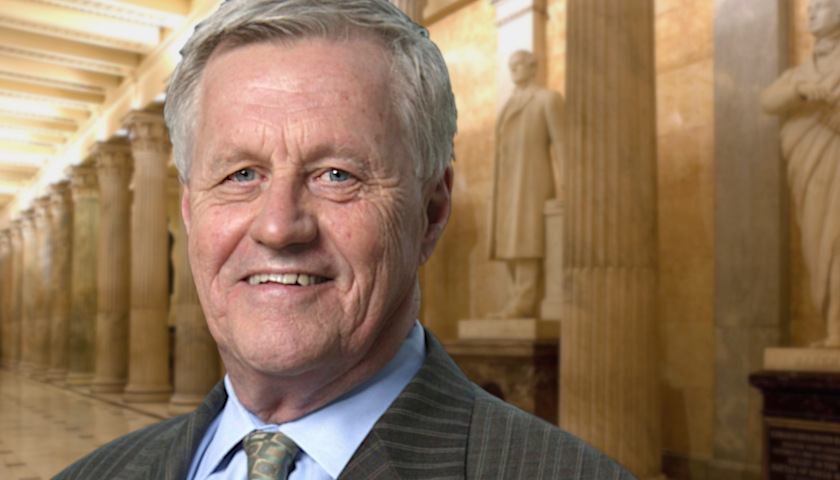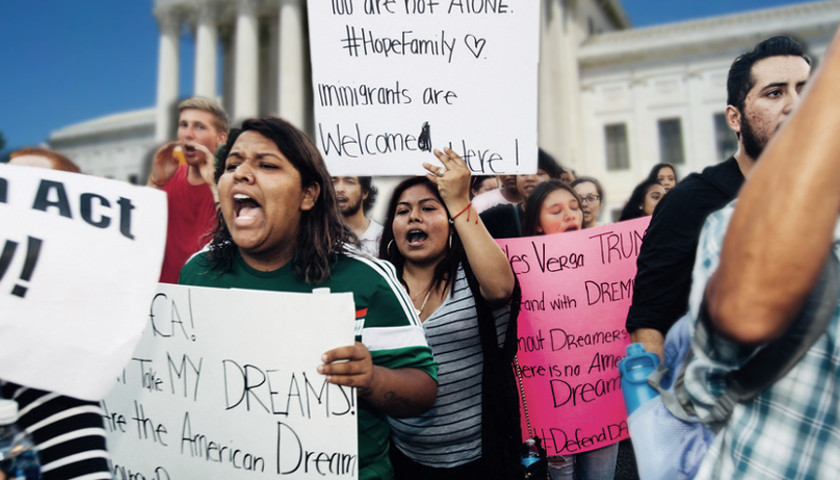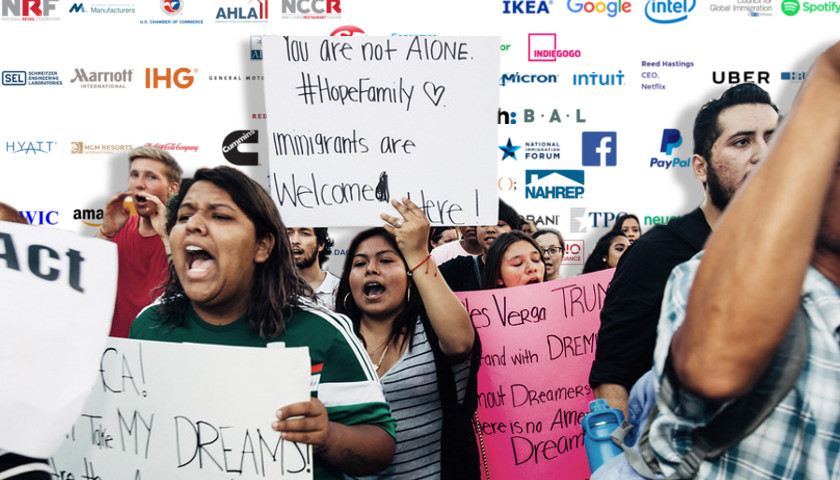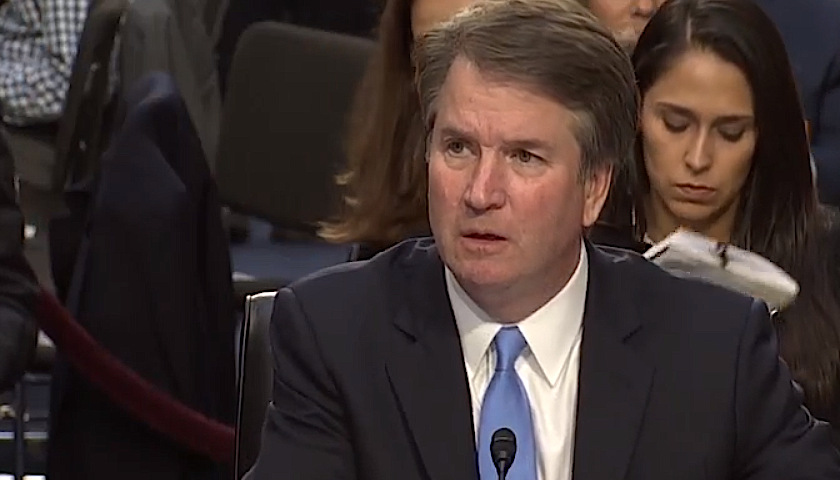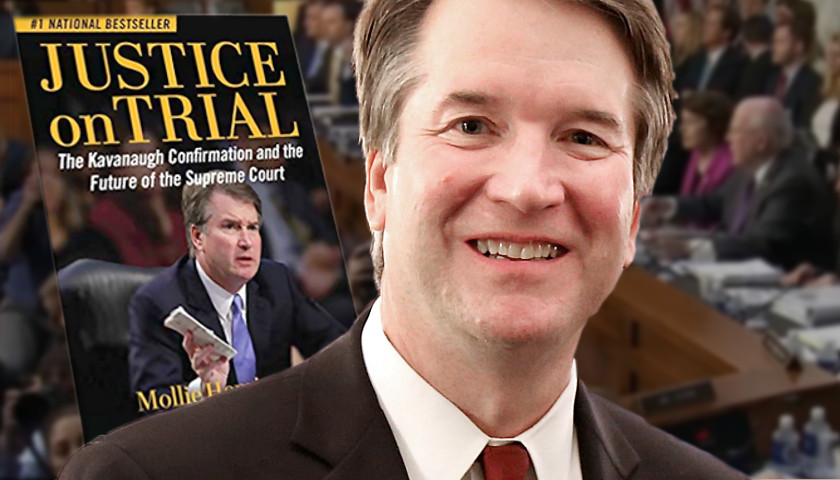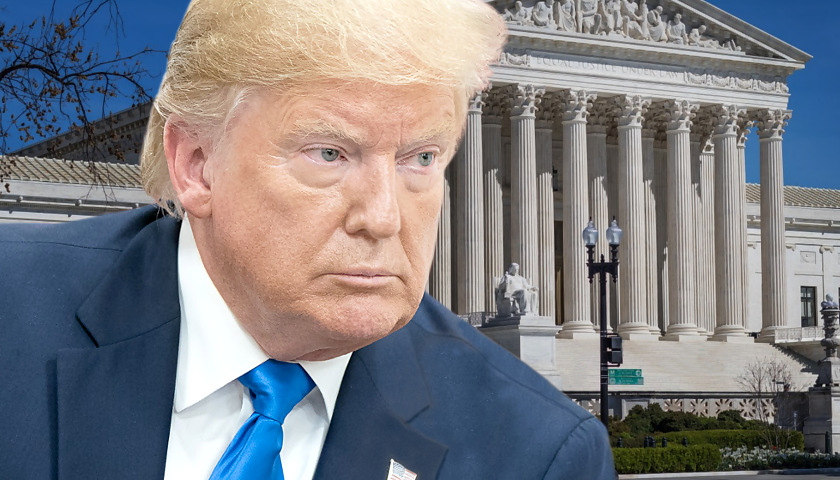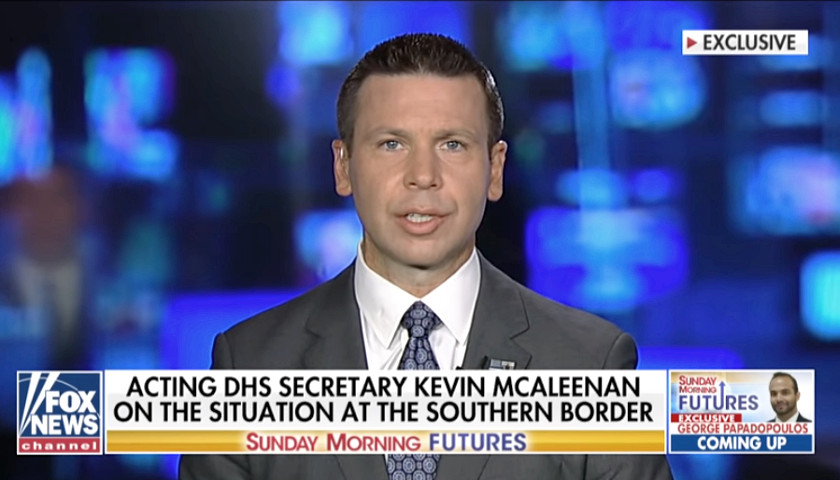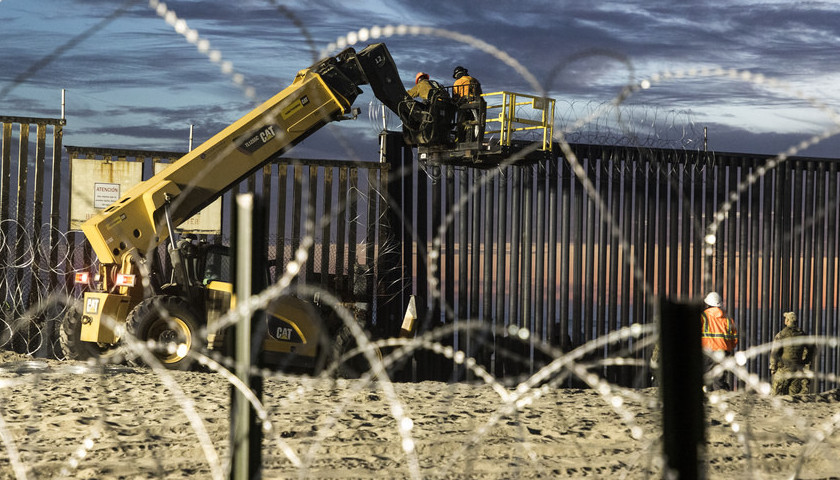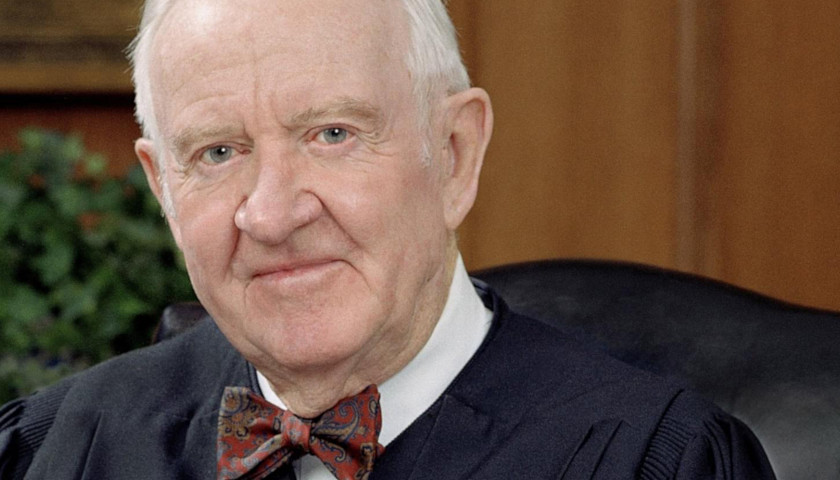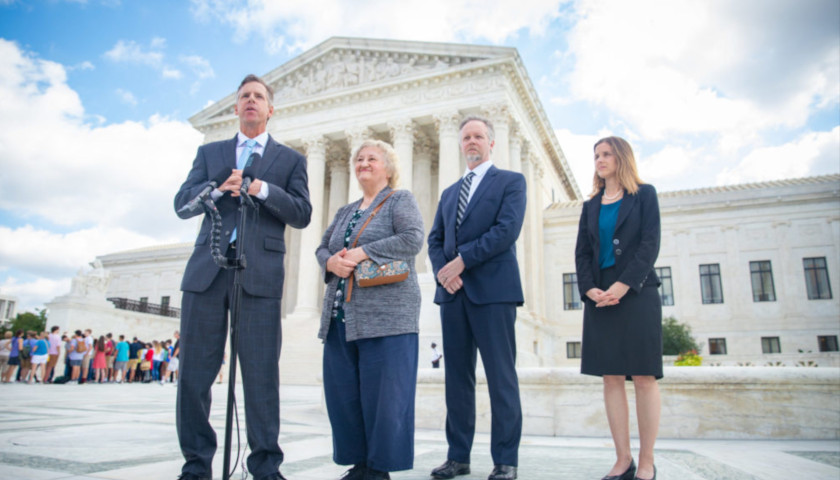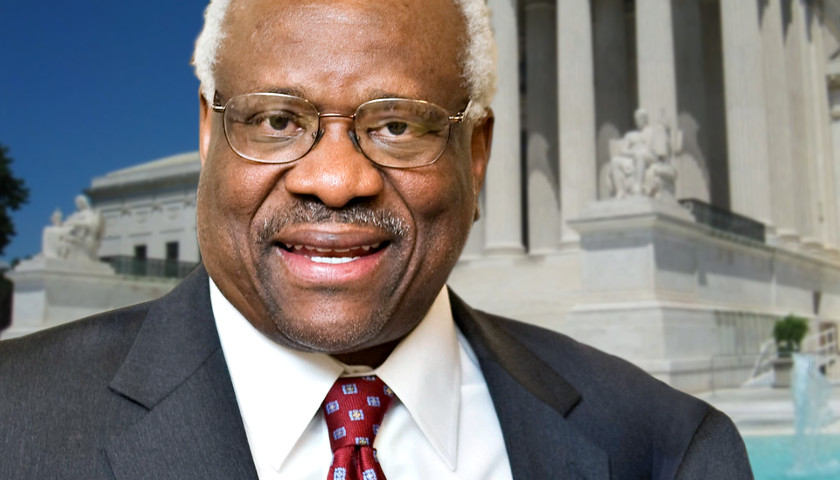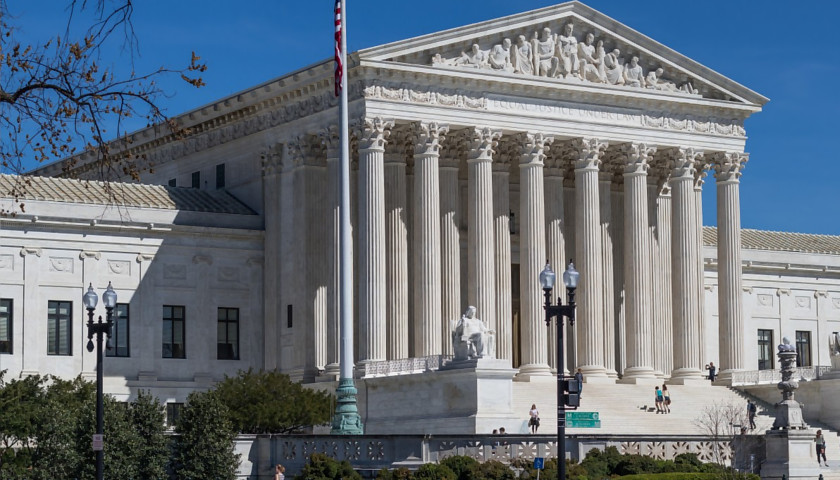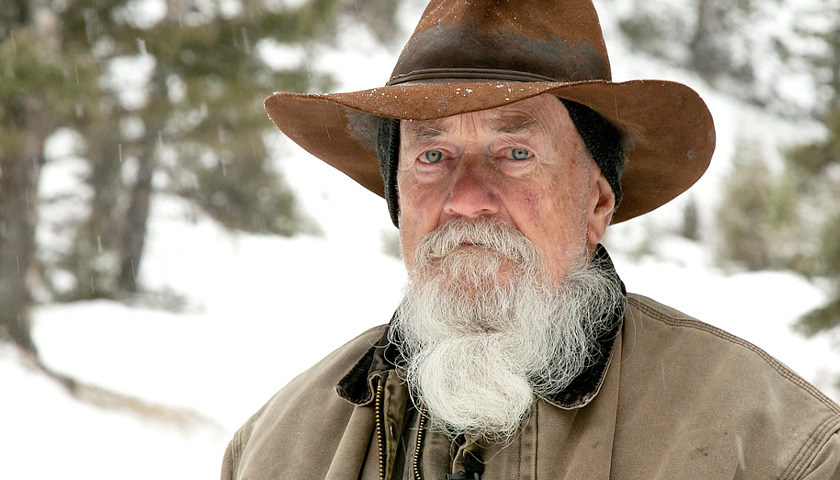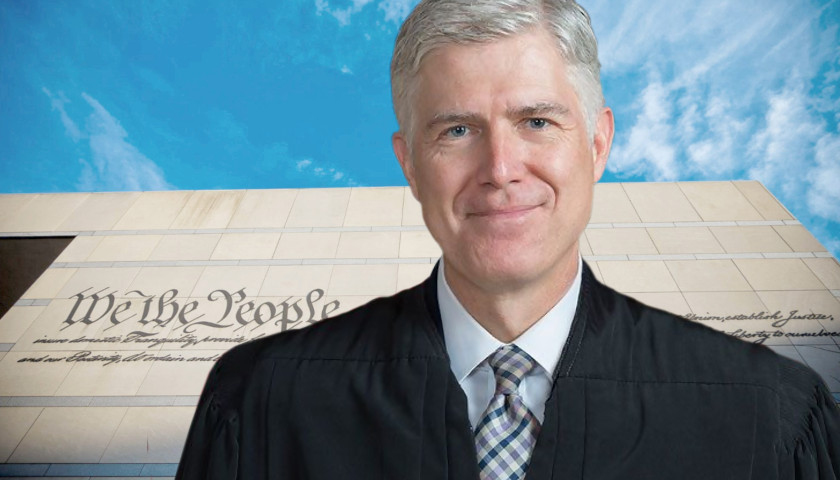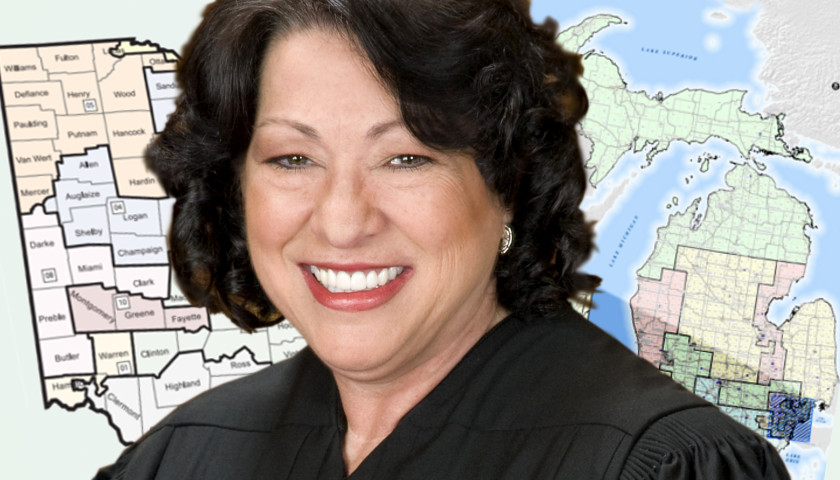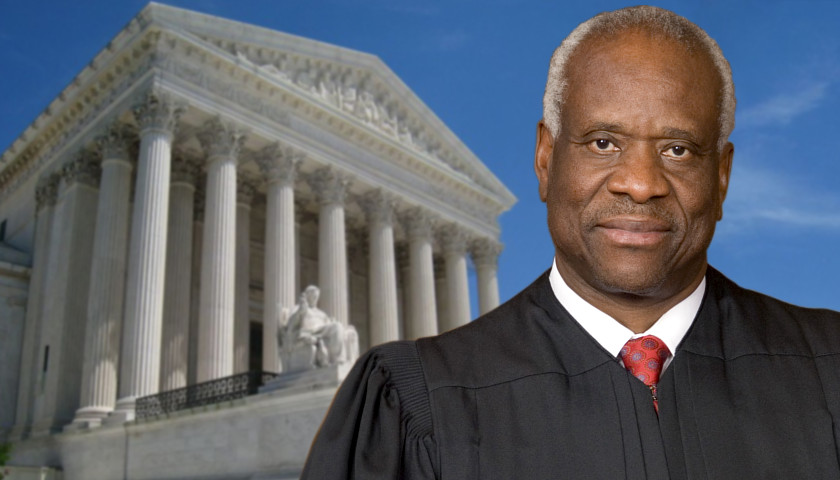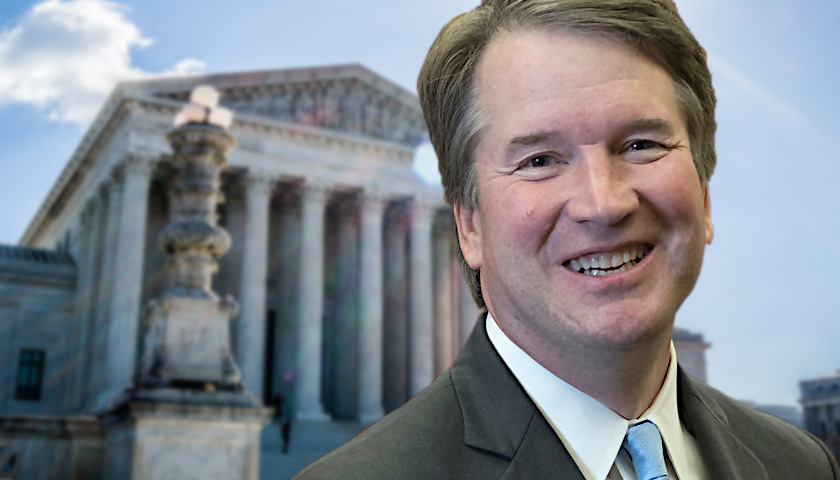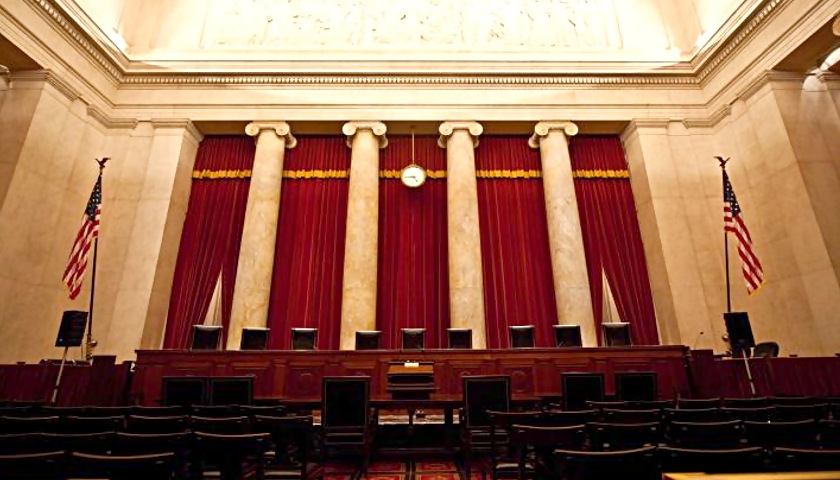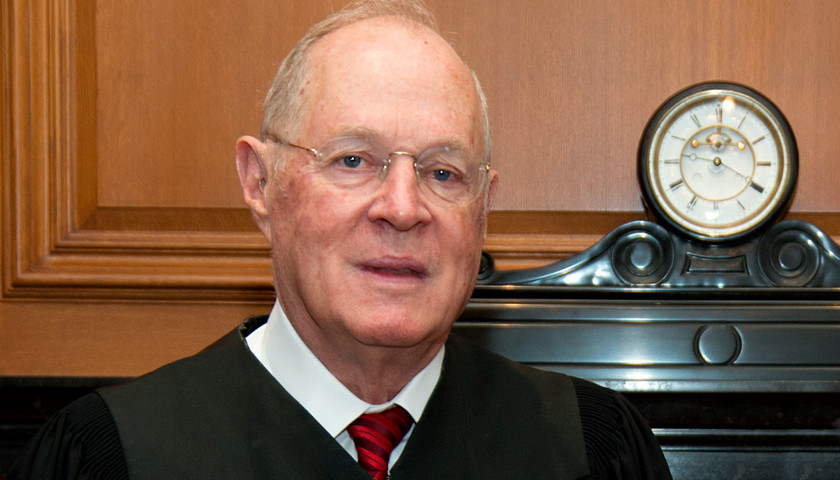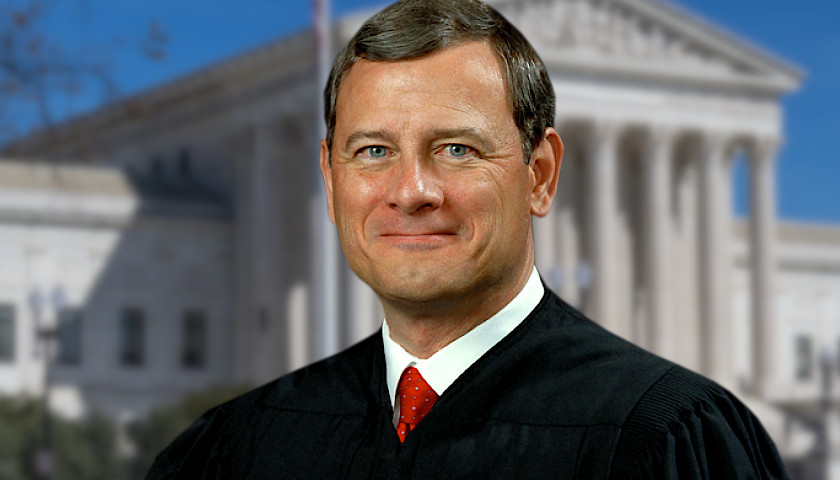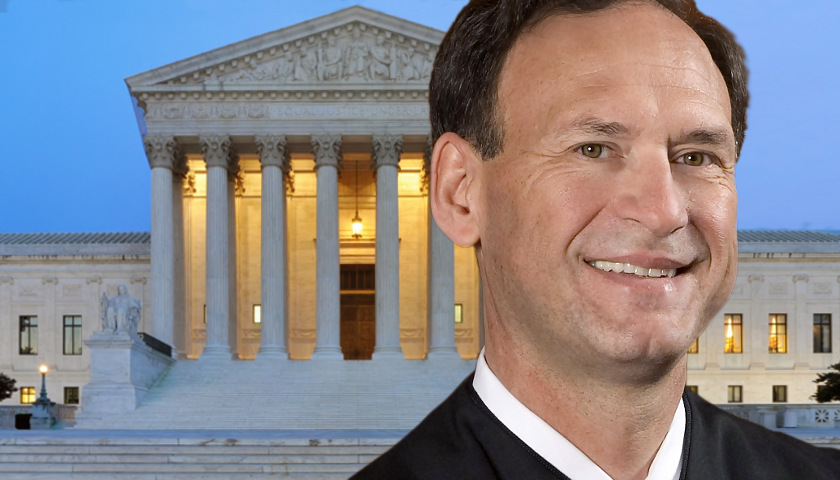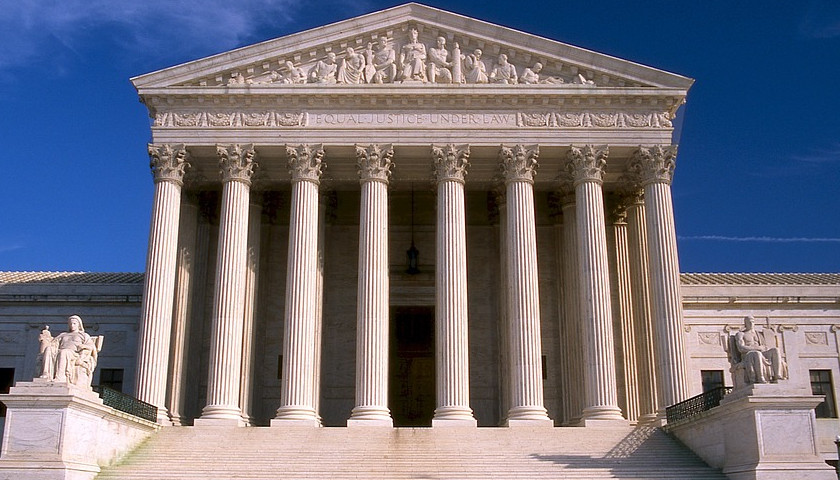Thursday morning on the Tennessee Star Report, host Michael Patrick Leahy welcomed guest host Ben Cunningham to the show to discuss elements of the Amy Coney Barrett hearings related to power and corruption.
Read the full storyTag: SCOTUS
Clint Brewer: ‘I Am Not in Favor of Either Party Radically Changing Systems of Government to Suit Themselves, Simply Because They Lost an Election and They’re Mad About It’
Tuesday morning on the Tennessee Star Report, host Michael Patrick Leahy welcomed all-star panelist Clint Brewer to the show to discuss the Democrats’ desire to pack the Supreme Court.
Read the full storySenator Klobuchar Calls Barrett Hearings a ‘Sham’ on Opening Day
Sen. Amy Klobuchar (D-MN) called the confirmation hearings for U.S. Supreme Court nominee Amy Coney Barrett “a sham” in her opening statement.
Klobuchar and her colleagues on the Senate Judiciary Committee convened Monday morning for the opening day of hearings, which will continue through Thursday. Barrett’s nomination was announced by President Donald Trump last month during an event in the White House Rose Garden.
Read the full storyREJECTED: SCOTUS Denies Gov Whitmer’s Request for Shutdown Extension
The Michigan Supreme Court on Monday rejected Gov. Gretchen Whitmer’s statement asserting her unconstitutional orders still hold power over Michiganders through Oct. 30.
Whitmer previously claimed her executive orders retained the force of law for 21 days after the court’s Oct. 2 ruling.
Read the full storySupremes Hear Google, Oracle Case of Copyright Clash
The topic was high tech: the code behind smartphones.
But on Wednesday the Supreme Court looked to more low tech examples, from the typewriter keyboard to restaurant menus, try to resolve an $8 billion-plus copyright dispute between tech giants Google and Oracle.
The case, which the justices heard by phone because of the coronavirus pandemic, has to do with Google’s creation of the Android operating system now used on the vast majority of smartphones worldwide. In developing Android, Google used some of Oracle’s computer code.
Read the full storyMarsha Blackburn Talks Senate Hearings for Amy Coney Barrett and the Plight of the Conservative Woman in Washington D.C.
Tuesday morning on the Tennessee Star Report, host Michael Patrick Leahy welcomed Tennessee Senator Marsha Blackburn to the show to discuss how the Senate will move forward with the hearings for Amy Coney Barrett.
Read the full storyCrom Carmichael Discusses the Democratic Kryptonite That is Institutional Constraints and Due Process
Monday morning on The Tennessee Star Report, host Michael Patrick Leahy welcomed the original all-star panelist Crom Carmichael to the studio to discuss due process and institutional constraints on government.
Read the full storyTrump Includes Michigan Judge on SCOTUS Shortlist
President Trump has pointed to several female judges — including a Michigan judge — to fill the seat of the late Supreme Court Justice Ruth Bader Ginsburg, according to an interview he gave on Fox News’s “Fox & Friends.”
Ginsburg passed away on Friday at age 87. She had served on the U.S Supreme Court for 27 years and was championed as a solid liberal vote.
Read the full storySenators Tina Smith and Amy Klobuchar: Trump Shouldn’t Pick the New SCOTUS Justice
Senators Tina Smith (DFL-MN) and Amy Klobuchar (DFL-MN) stated that President Trump shouldn’t pick the Supreme Court of the United States (SCOTUS) nominee. Instead, Smith and Klobuchar say that the newly-elected president should, and the Senate should wait to vote until then.
Supreme Court Justice Ruth Bader Ginsburg died Friday from cancer complications. The SCOTUS vacancy is now the epicenter of political leaders’ attention.
Opioids, Violence and the Supreme Court Largely Omitted from DNC Convention Speeches
Democrats focused on coronavirus, climate change, racial inequality and more during their party’s convention, but none pf the keynote speakers mentioned rising violence in cities across the country or the opioid epidemic during the primetime program.
The two issues have been worsening in part due to nationwide unrest and the pandemic, media reports and studies say. The Supreme Court — a large focus of the 2016 election — was also largely ignored.
Read the full storySCOTUS Rules in Favor of Catholic Nuns, Upholds Conscience Exemptions for Birth Control Mandate
The United States Supreme Court ruled to uphold conscience exemptions from former President Barack Obama’s birth control mandate in a victory for the Little Sisters of the Poor.
SCOTUS ruled 7-2 that the Catholic nuns are exempt from Obama’s contraceptive mandate.
Read the full storyConservatives Praise Supreme Court for Ruling States Can’t Discriminate Against Religious Schools
The U.S. Supreme Court said Tuesday that states can’t cut religious schools out of programs that send public money to private education in a 5-4 ruling.
Hailed as a victory for religious freedom, the justices upheld a Montana scholarship program that allows state tax credits for private schooling in which almost all the recipients attend religious schools.
Read the full storySCOTUS Strikes Down Ban on Taxpayers Funding Religious Schools
The Supreme Court ruled against a ban on taxpayer funding of religious schools Tuesday in a monumental win for school choice.
Chief Justice John Roberts joined conservative justices in a 5-4 ruling backing a Montana tax-credit scholarship program that gives residents credit if they donated to private scholarship organizations, according to Fox News, which would help the students pay for the private school of their choice.
Read the full storyConservatives Call Out Chief Justice John Roberts on Abortion Ruling: ‘He’s a Disgrace’
by Mary Margaret Olohan Conservatives are turning against Chief Justice John Roberts after the Supreme Court justice sided with liberal judges in a monumental abortion ruling. Chief Justice John Roberts sided with liberal members of the court in the close 5-4 ruling, writing that “the Louisiana law imposes a burden on access to abortion just as severe as that imposed by the Texas law, for the same reasons.” Pro-lifers and conservatives alike had anxiously awaited Robert’s decision on the landmark abortion ruling, worrying that Roberts might side with the liberal justices based on his previous votes earlier in June. Conservatives ripped into Roberts Monday following news of the decision. Turning Point USA Founder Charlie Kirk called the chief justice “a disgrace” while former Arkansas Gov. Mike Huckabee condemned Roberts as “an empty black robe.” Political commentator Dinesh D’Souza labeled “a sizable majority of #SCOTUS justices” including Justices Souter, Kennedy, and Roberts, “unreliable turncoats.” Republicans have nominated a sizable majority of #SCOTUS justices, yet one after another—from Souter to Kennedy to Roberts—they have proven to be unreliable turncoats. The conservative strategy of naming judges supposedly faithful to “original intent” is now a confirmed failure — Dinesh D'Souza (@DineshDSouza) June 29, 2020 “Roberts has destroyed any credibility the Court may have…
Read the full storySupreme Court Justice Roberts Swings Left, Joins Liberals to Strike Down Louisiana Law Requiring Abortionists to Have Hospital Privileges
The United States Supreme Court ruled Monday that a pro-life law violates the rights of both women and abortion providers in Louisiana.
Chief Justice John Roberts sided with liberal members of the court in the close 5-4 ruling.
Read the full storyCommentary: Immortalizing Bureaucracy
Just as the infamous Dred Scott case in 1857 would have extended slavery throughout America, so Thursday’s decision in Department of Homeland Security v. Regents of the University of California threatens to make the machinations of bureaucratic government supreme and unrepealable.
Chief Justice John Roberts’ 5-4 court opinion strengthens the grip of the administrative state – the interlocking network of bureaucracy and political correctness – over the democratically elected branches that are supposed to make us a nation of self-governing citizens.
Read the full storyLeahy and Carmichael Discuss Juneteenth and Chief Justice Roberts’s Decision on DACA
Live from Music Row Friday morning on The Tennessee Star Report with Michael Patrick Leahy – broadcast on Nashville’s Talk Radio 98.3 and 1510 WLAC weekdays from 5:00 a.m. to 8:00 a.m. – host Leahy welcomed in-studio all-star panelist Crom Carmichael.
During the second hour, Leahy and Carmichael discuss Juneteenth and how Trump has done more for the black and Hispanic communities than previous presidents. The men also touched on the recent position that Chief Justice John Roberts took on an executive order that was signed eight years ago by former President Obama called Deferred Action for Childhood Arrivals.
Read the full storyCrom Carmichael Points Out the Silver Lining in the Recent LGBTQ Discrimination Ruling
Live from Music Row Monday morning on The Tennessee Star Report with Michael Patrick Leahy – broadcast on Nashville’s Talk Radio 98.3 and 1510 WLAC weekdays from 5:00 a.m. to 8:00 a.m. – host Leahy welcomed in-studio all-star panelist Crom Carmichael.
During the third hour, Leahy and Carmichael discuss the recent Supreme Court ruling that said LGBTQ people can’t be legally discriminated against.
Read the full storySupremes Revive Permit for Pipeline Under Appalachian Trail
The Supreme Court on Monday paved the way for a critical permit for a proposed natural gas pipeline that would cross under the Appalachian Trail, siding with energy companies and the Trump administration.
The justices ruled 7-2 to reverse a lower court ruling that had thrown out the permit for the Atlantic Coast Pipeline. It would bring natural gas from West Virginia to growing markets in Virginia and North Carolina. Its supporters say the pipeline would bring economic development, thousands of jobs and reduced energy costs for consumers.
Read the full storyJustices Rule LGBT People Protected from Job Discrimination
The Supreme Court ruled Monday that a landmark civil rights law protects gay, lesbian and transgender people from discrimination in employment, a resounding victory for LGBT rights from a conservative court.
The court decided by a 6-3 vote that a key provision of the Civil Rights Act of 1964 known as Title VII that bars job discrimination because of sex, among other reasons, encompasses bias against LGBT workers.
Read the full storyRepublicans Call on Tina Smith to Condemn Schumer’s Threats Against Gorsuch and Kavanaugh
Republicans are calling on Sen. Tina Smith (D-MN) to condemn Senate Minority Leader Chuck Schumer’s (D-NY) threats against Supreme Court Justices Neil Gorsuch and Brett Kavanaugh.
Read the full storySalem Books Will Publish Masterpiece Cakeshop Owner Jack Phillips’ Memoir, ‘The Baker’
Salem Books – an imprint of Regnery Publishing – will publish Jack Phillips’ memoir, The Baker. Phillips became a household name in 2012 after the Colorado pastry chef refused to make a wedding cake for a same sex couple. The lawsuit was eventually argued in front of the Supreme Court, who decided 7-2 in favor of Phillips.
Read the full storyTrump Administration Tells Supreme Court Not to Fast-Track Obamacare Challenge
The Trump administration told the Supreme Court there is no reason to fast-track its consideration of two petitions seeking review of a lower court decision that struck down the Affordable Care Act’s individual mandate.
Read the full storyChief Justice John Roberts Jr. Highlights Civic Education in Year-End Report
In his annual year-end report, Chief Justice of the United States Supreme Court John Roberts, Jr., focused on civics education, calling for increased confidence in and education about the judicial system.
Read the full storyCollin Peterson Joins Republicans in Asking Supreme Court to ‘Reconsider’ Roe v. Wade
All three of Minnesota’s Republican members of Congress along with Rep. Collin Peterson (D-MN-07) joined more than 200 of their colleagues in asking the U.S. Supreme Court Thursday to “reconsider” Roe v. Wade.
Read the full storyThe Supreme Court Heard Its First Gun Rights Case in Years, but It Might Be a Misfire
by Kevin Daley The Supreme Court heard arguments in a gun rights case for the first time in nearly 10 years Monday, involving a challenge to since-repealed New York City rules that greatly restricted the transportation of firearms. Though the case is closely watched as a possible bellwether for future disputes over the Second Amendment, several members of the court, including Chief Justice John Roberts, seemed ready to dismiss the case for procedural reasons, without a decision on the contested New York regulations. New York City’s gun transportation rules Under a since-repealed ordinance, New York residents had to obtain a “premises license” from city authorities to lawfully possess a firearm. That license restricted possession to the address listed on the license itself. The transportation guidelines that license holders had to follow were before the high court Monday. Those rules provided that gun owners could carry their firearms to one of seven shooting ranges in the city. To do so, however, they had to keep their weapons in a locked container, with ammunition carried separately. They could not carry their guns past city lines. If they wished to transport weapons to any location besides an approved range, they had to…
Read the full storyCommentary: A DACA Ruling Won’t Solve the DACA Dilemma
The U.S. Supreme Court on Tuesday heard highly anticipated arguments in the lawsuit challenging President Trump’s decision to end the Deferred Action for Childhood Arrivals (DACA) program.
Read the full storyMinnesota Businesses Sign Legal Brief in Support of Upholding DACA
Several prominent businesses headquartered in Minnesota signed on to an amicus brief in support of upholding the Deferred Action for Childhood Arrivals (DACA) program.
Read the full storyElizabeth Warren, Kamala Harris, and Julian Castro Call for Kavanaugh’s Ouster Following Reports Drudging Up More Allegations
Sen. Kamala Harris and fellow Democratic presidential candidates are calling for Congress to impeach sitting Supreme Court Justice Brett Kavanaugh after a report Saturday resurrected allegations against the justice.
Read the full storyREVIEW: New Book Exposes Who and How Brett Kavanaugh Was Defamed
The Left’s crusade to destroy Supreme Court Justice Brett Kavanaugh isn’t over yet. Last week, House Judiciary Committee Chairman Jerrold Nadler (D-N.Y.) sent a letter to the National Archives to demand the release of any records related to Kavanaugh’s tenure in the George W. Bush White House from 2001 to 2006.
Read the full storyCommentary: The Courts Would be Wise to Stay Out of Political Battles
The nine philosopher-kings enthroned on the Supreme Court were finally gracious enough to let President Trump proceed with his plans to build a wall at the southern border, at least for now. In a 5-4 ruling, the court last month overturned an appellate court’s decision, allowing the Trump Administration to tap into military funds and continue construction while litigation is pending.
Read the full storyDHS Chief McAleenan Praises Supreme Court Decision: ‘Big Victory’ for Border Wall
Acting Homeland Security Secretary Kevin McAleenan lauded the Supreme Court decision allowing the administration to use military funds to build additional border wall.
Read the full storyDemocrats Join Forces to Urge the Supreme Court to Block the Southern Border Barrier Based on ‘the Environment’
by Kevin Daley Environmental groups and House Democrats urged the Supreme Court not to disturb a lower court order blocking the reallocation of military funds for border wall projects. The Trump administration asked the Supreme Court to put that ruling on hold while litigation continues July 12. Granting that request — called a stay — would give the government an irreversible victory, a coalition of environmentalists led by the Sierra Club warned. “If a stay is granted and wall construction begins, there will be no turning back,” the green groups told the justices in court papers. U.S. District Judge Haywood Gilliam barred the administration from using $2.5 billion in military funds for border wall construction. The trial court’s injunctions stalled border barrier construction projects in Arizona and New Mexico. The 9th U.S. Circuit Court of Appeals denied the administration’s request to stay Gilliam’s ruling while litigation continued by a 2-1 vote July 3. The government filed a stay application with the Supreme Court on July 12. Environmentalists fear ‘irrevocable victory’ Stays are supposed to preserve the status quo among litigants while a lawsuit proceeds through court. If the justices grant the administration’s request, the government can begin construction on several border wall projects the courts…
Read the full storyFormer Supreme Court Justice John Paul Stevens Has Died
by Kyle Daley Retired Supreme Court Justice John Paul Stevens, the Republican corporate lawyer who became the leader of the Court’s liberal wing, died Tuesday night in Ft. Lauderdale, Florida. He was 99. The Supreme Court’s public information office said Stevens died from complications of a stroke suffered earlier in the day. “A son of the midwest heartland and a veteran of World War II, Justice Stevens devoted his long life to public service, including 35 years on the Supreme Court,” Chief Justice John Roberts said in a statement. “He brought to our bench an inimitable blend of kindness, humility, wisdom and independence. His unrelenting commitment to justice has left us a better nation.” “We extend our deepest condolences to his children Elizabeth and Susan, and to his extended family. Steven’s 35 year tenure is the third longest in the Court’s history. When he retired in 2010 at age 90, he was the second oldest justice ever to sit on the high court. – – – Kyle Daley is a reporter for the Daily Caller News Foundation. Content created by The Daily Caller News Foundation is available without charge to any eligible news publisher…
Read the full storyPennsylvania Farmer Wins Supreme Court Case That Finds Federal Property Rights are Equal to Other Constitutional Rights
The U.S. Supreme Court on Friday ruled in favor of a Pennsylvania farm owner who said the government effectively took her property without paying for it. Rose Knick won the victory in the case of Knick v. Township of Scott. In making its ruling, SCOTUS overturned a 1985 precedent, Williamson County Regional Planning Commission v. Hamilton Bank of Johnson City. The Supreme Court’s opinion is here. Knick was represented by Pacific Legal Foundation, which argued for SCOTUS to overturn the 1985 ruling that allowed federal courts to refuse to hear her challenge to a local ordinance that forced her to allow public access to her private farmland, according to a press release by PLF. PLF said in a story that Knick’s ordeal began in 2013, when government agents forced her to allow public access to a suspected gravesite on her farmland. She sued over the unconstitutional taking. A federal court refused to hear her federal claim, citing the 1985 decision. Hamilton Bank of Johnson City, Tennessee owned of a tract of land in Williamson County and intended to develop it into a residential subdivision, according to a case summary by Oyez. The Williamson County Regional Planning Commission denied the…
Read the full storyCommentary: Justice Thomas on the Dynamite That Is Natural Right
by Ken Masugi If it’s true that “natural right is dynamite,” as political philosopher Leo Strauss wrote, then Justice Clarence Thomas just went nuclear on the abortion debate. While Thomas’s concurring opinion in Box v. Planned Parenthood has received considerable commentary, his deepening of the judicial and, hence, the political debate over abortion demands further elaboration. His reply to the leading threat to the principles of the Declaration of Independence is his latest attempt in a career of restoring its authority. Thomas had argued, “this [Indiana] law and other laws like it promote a State’s compelling interest in preventing abortion from becoming a tool of modern-day eugenics.” The Indiana law had barred abortion for the purposes of sex and race selection, and for fetal disabilities. Thomas critics contend he wrongly introduced elements of the now-(justly) maligned eugenics movement into the abortion debate. But recall that Justice Blackmun in Roe v. Wade observed (as Professor David Bernstein reminded me), “population growth, pollution, poverty, and racial overtones tend to complicate and not to simplify the problem.” I would argue instead that Blackmun was trying to obfuscate the issue, whose terrible clarity Thomas was trying to highlight: “From the beginning, birth control and abortion were promoted as means of effectuating…
Read the full storySupreme Court Turns Down Trump Administration Bid to Accelerate DACA Appeal
by Kevin Daley The Supreme Court rejected a request Monday to expedite its consideration of the Trump administration’s bid to end the Deferred Action for Childhood Arrivals (DACA) program. DACA is an Obama-era amnesty initiative that extends temporary legal status to 700,000 non-citizens who arrived in the U.S. as children. There were no noted dissents from Monday’s decision. As is typical of orders of this nature, the Court did not give reasons for rejecting the government’s request. The Department of Homeland Security first took steps to terminate DACA in September 2017. Federal trial judges subsequently entered injunctions requiring that Trump maintain the program while litigation continued. Beginning in November 2018, the administration challenged three of those injunctions in the Supreme Court. The justices were poised to decide whether to hear those cases in January, but no action came. The Court’s continued inaction on those petitions is perhaps the greatest mystery of the current Supreme Court term. The administration filed a fourth DACA petition at the high court in May, after the 4th U.S. Circuit Court of Appeals upheld one of the injunctions against DACA repeal. This time, the Department of Justice asked the Court to put the petition on the fast track…
Read the full storyJoe Robertson Was Imprisoned for Digging Ponds on His Montana Land, and Now His Widow Continues the Fight
by Kevin Mooney The name of a Navy veteran may be cleared after he was convicted, fined, and imprisoned for digging ponds in a wooded area near his Montana home, to supply water in case of fire. The Supreme Court has vacated a lower court ruling against Joe Robertson, who was sent to federal prison and ordered to pay $130,000 in restitution through deductions from his Social Security checks. Any definitive legal victory for Robertson would be posthumous, since he died March 18 at age 80. But his lawyers describe the Supreme Court’s action as a “big win” for Robertson’s widow, Carrie, who plans to carry on the fight. [ The liberal Left continue to push their radical agenda against American values. The good news is there is a solution. Find out more ] President Barack Obama’s Justice Department had prosecuted Robertson for digging in “navigable waters” without a permit, in violation of the Clean Water Act. The 9th U.S. Circuit Court of Appeals upheld a lower court ruling against Robertson in November 2017 and denied him a rehearing in July 2018. The Navy veteran’s initial trial at the district court level resulted in a hung jury and a mistrial. He then was…
Read the full storyJustice Neil Gorsuch Will Replace Joe Biden as Honorary Chair of the National Constitution Center
Supreme Court Justice Neil Gorsuch is taking on a new role as the honorary chairman of a nonpartisan group devoted to education about the Constitution, replacing former Vice President Joe Biden. The National Constitution Center in Philadelphia said Tuesday that Gorsuch, named to the high court by President Donald Trump, will serve as a spokesman for civics education and civility in politics. The 51-year-old Gorsuch is the first sitting Supreme Court Justice to be the center’s chairman. Vice President Biden stepped down when he launched his campaign for the presidency in April. Justice Gorsuch said he’s concerned by polls that show most Americans would flunk a citizenship test and many say incivility keeps them away from public affairs. “For a government of and by the people to work, everyone must have some idea how our Constitution works and we must be able to talk to each other about important ideas in an atmosphere of mutual respect,” Gorsuch said in a comment provided by the Supreme Court. Jeffrey Rosen, the National Constitution Center’s president and CEO, said the organization was attracted by Gorsuch’s commitment to civics and civility. “We’re genuinely excited about this partnership because Justice Gorsuch is so passionate…
Read the full storySCOTUS: iPhone Users Can Sue Apple for App Monopoly
by Kevin Daley The Supreme Court ruled Monday that iPhone users can bring an antitrust lawsuit against Apple alleging the tech giant has monopolized the market for software applications. Justice Brett Kavanaugh delivered the 5-4 decision, joined by the high court’s liberal bloc, which may have far-reaching consequences for Silicon Valley. “The plaintiffs seek to hold retailers to account if the retailers engage in unlawful anticompetitive conduct that harms consumers who purchase from those retailers,” Kavanaugh wrote. “That is why we have antitrust law.” The iPhone app market is a tightly-controlled system. iPhones are programmed so they cannot download apps outside the Apple-administered App Store, and users who modify their devices to download apps from other sources — called jailbreaking — risk adverse consequences like voiding their warranty. What’s more, Apple has broad discretion over products in its store, and may remove apps for any reason whatever. Other requirements include a mandate to price all apps on a .99 scale, like $1.99 and $2.99. When an application is purchased, Apple collects a 30 percent commission and gives the other 70 percent to the developer. For subscriptions, Apple collects a 15 percent share after the first year. Taken together, the plaintiffs say…
Read the full storyCommentary: A Deep-Dive into the Other Deep State – Public Sector Unions
by Edward Ring When government fails, public-sector unions win. When society fragments, public-sector unions consolidate their power. When citizenship itself becomes less meaningful, and the benefits of American citizenship wither, government unions offer an exclusive solidarity. Government unions insulate their members from the challenges facing ordinary private citizens. On every major issue of our time; globalization, immigration, climate change, the integrity of our elections, crime and punishment, regulations, government spending, and fiscal reform, the interests and political bias of public-sector unions is inherently in conflict with the public interest. Today, there may be no greater core threat to the freedom and prosperity of the American people. In the age of talk radio, the Tea Party movement, internet connectivity, and Trump, Americans finally are mobilizing against the uniparty to take back their nation. Yet the threat of public-sector unions typically is a sideshow, when it ought to occupy center stage. They are the greatest menace to American civilization that nobody seems to be talking about. Ask the average American what the difference is between a government union, and a private sector union, and you’re likely to be met with an uncomprehending stare. That’s too bad, because the differences are profound.…
Read the full storyMichigan, Ohio Republicans Ask Supremes to Put Gerrymandering Rulings on Hold
by Kevin Daley Republican lawmakers in Michigan and Ohio asked the Supreme Court to temporarily block lower court decisions ordering them to produce new district lines for their congressional and state legislative maps. Separate three-judge panels found the Michigan and Ohio maps were rigged to favor of Republicans, in violation of the Constitution. Both applications were presented to Justice Sonia Sotomayor, who reviews emergency applications arising from the 6th U.S. Circuit Court of Appeals, which covers Michigan and Ohio. Sotomayor may ask both sides to submit further briefs, refer the matters to the full Court for consideration, or both. The applications come as the Supreme Court is considering related challenges from Maryland and North Carolina, which ask whether and how federal courts should police partisan gerrymandering. Decisions in those cases will bear directly on the Michigan and Ohio disputes, since all four matters present similar issues. In the Ohio case, the lower court ordered the state to produce a new map by June 14. There is a good chance the Maryland and North Carolina disputes will not be decided at that time. Ohio Republicans said that could cause ordinary people to conclude that the lower court is trying to impose a new map on…
Read the full storyTwo Key Cases the Supreme Court Will Hear in April
by Elizabeth Slattery Conversations about the Supreme Court this spring have been dominated by discussion of conspiracy theories about Justice Ruth Bader Ginsburg’s health, Democratic presidential hopefuls’ plans to “pack the Supreme Court,” and a manufactured “controversy” over Justice Brett Kavanaugh teaching at George Mason University’s Scalia Law School. But on Monday, the justices begin their final argument sitting of the term, with 13 oral arguments scheduled over the next two weeks. Here are two cases to watch this month. 1. Whether the Term ‘FUCT’ Can Be Trademarked In Iancu v. Brunetti, the justices will look at whether a federal law called the Lanham Act that prohibits registration of “immoral” or “scandalous” trademarks by the U.S. Patent and Trademark Office violates the First Amendment. [ The liberal Left continue to push their radical agenda against American values. The good news is there is a solution. Find out more ] If this sounds familiar, that’s because the Supreme Court heard a similar case, Matal v. Tam, challenging the same law’s prohibition on “offensive” trademarks in 2017. The justices unanimously ruled for the challengers, an Asian-American band called the Slants, with Justice Samuel Alito declaring that the ban on “offensive” trademarks “offend[ed] a bedrock First Amendment principle: Speech may not…
Read the full storyClarence Thomas Clerks Dominate Trump’s Judicial Appointments
by Kevin Daley One credential in particular has been a boon to candidates President Donald Trump considers for judicial appointments: a clerkship with Justice Clarence Thomas. As of this writing, the president has appointed seven Thomas clerks to the federal appeals courts, while an eighth is expected in the near future. As such, Thomas’s legal approach — sometimes branded unusual or idiosyncratic — can claim adherents among a new generation of judges. “At this point, Justice Thomas is clearly the leading intellectual force on the conservative side of the bench,” said Carrie Severino, a former Thomas clerk who leads the Judicial Crisis Network, an advocacy group that supports Trump’s efforts to recast the judicial branch. “His principled approach to the law is very much in the ascendency and those are the kind of judges that this president has pledged for the courts,” Severino added. Thomas generally hires law clerks who share his originalist judicial philosophy. Among the Supreme Court’s conservatives, he is somewhat unique in that respect: former Justice Antonin Scalia periodically hired liberal “counter clerks” to sharpen his work, while the hiring practices of other conservatives like Chief Justice John Roberts and Justice Brett Kavanaugh appears slightly more varied. “I’m…
Read the full storyKavanaugh Warns Of ‘Pure Discrimination’ as Supreme Court Denies Church Bid for Historic Preservation Grant
by Kevin Daley The Supreme Court refused Monday to decide whether religious institutions may be disqualified from public historic preservation funding, after a New Jersey court forbade local officials from dispersing $4 million to 12 churches. Justice Brett Kavanaugh wrote a separate opinion addressing the dispute, calling the lower court’s decision “pure discrimination.” “Barring religious organizations because they are religious from a general historic preservation grants program is pure discrimination against religion,” Kavanaugh wrote. “At some point, this Court will need to decide whether governments that distribute historic preservation funds may deny funds to religious organizations simply because the organizations are religious.” Justices Samuel Alito and Neil Gorsuch joined the Kavanaugh opinion. Morris County, New Jersey awards grants for the maintenance of historically significant structures. Several churches dating back to the colonial period have received public support through that program since 2012. The case at issue Monday arose in April 2016, when the Freedom From Religion Foundation (FFRF) and a local taxpayer brought a lawsuit claiming the Morris County program violates New Jersey’s constitution. The state constitution provides that no person shall be “obliged to pay tithes, taxes, or other rates for building or repairing any church or churches.” The New Jersey…
Read the full storySupreme Court Expedites Citizenship Question in Census Case
by Fred Lucas The Supreme Court will settle the question on whether the question of citizenship can be included in the 2020 census, bypassing an appeals court hearing. The high court announced Friday it will hear arguments in April, with a likely decision by June. Commerce Secretary Wilbur Ross announced last year the Census Bureau would add the question. Last month, U.S. District Judge Jesse M. Furman of the Southern District of New York ruled the Census Bureau could not ask about citizenship. The judge ruled the question would lead to undercounting illegal residents and Hispanics. The next week, the Trump administration moved to bypass the appeals courts, and take the issue straight to the Supreme Court, given the urgency to prepare the census. The case would normally be appealed to the U.S. Court of Appeals for the 2nd Circuit. The liberal Left continue to push their radical agenda against American values. The good news is there is a solution. Find out more >> Citizenship would seemingly be more important than knowing the race or gender of someone filling out a census form, said Michael Gonzalez, a senior fellow for national security at The Heritage Foundation, since the government’s job is to protect the…
Read the full storyAnthony Kennedy Says Loss Of Decency Is a Threat to Democracy
by Kevin Daley Retired Supreme Court Justice Anthony Kennedy warned university students that democracy is endangered by the decline of free and open civic debate. “We have a social framework of decency that we’re very quickly losing,” Kennedy said, according to the San Francisco Chronicle, which was on hand during the recent event at the UC Hastings College of Law. Without that framework, he explained, free societies cannot endure. Elsewhere in his remarks, the justice bemoaned the “egocentrism that the cyber age has brought us.” “Our young people in the cyber age don’t think the past is important,” Kennedy said. “If it’s not on your screen, it’s not important.” The importance of civil, wide-ranging discourse was a major touchstones of Kennedy’s jurisprudence during his tenure on the Supreme Court. Even in closely-divided cases touching hot social controversies, the justice emphasized the respect due to all parties and extolled the virtue of free expression. Perhaps the most significant of Kennedy’s opinions was the 2015 Obergefell v. Hodges ruling, which established the constitutional right to same-sex marriage. There he repeatedly argued that the decision’s detractors had good faith objections to same-sex unions which should be aired in a respectful exchange of views. “Many…
Read the full storyBiography Reveals New Details Of Roberts’ Obamacare Vote
by Kevin Daley A forthcoming biography of Chief Justice John Roberts contains the first account of the Supreme Court’s internal politicking over the 2012 NFIB v. Sebelius decision, in which Roberts joined with the Court’s four liberals to uphold the Affordable Care Act’s individual mandate. A review of the much anticipated book — the first major Roberts biography — will appear in the March edition of the Atlantic, which disseminates new details of the chief’s scheming in advance of the book’s release. The book relates that in the weeks following the March 2012 arguments, Roberts voted with the conservative bloc to strike down the individual mandate, finding Congress had exceeded its power under the commerce clause by compelling people to buy insurance. Roberts elected to keep the majority opinion for himself — one of the few formal powers of the chief justice is the duty to assign opinions. As time progressed, Roberts grew uneasy and sought a third way. Initially, he hoped Justice Anthony Kennedy — the vaunted swing justice who had negotiated compromise decisions in seminal cases before — would be amenable to such negotiations. Whatever his reputation, Kennedy was not a moderate but an idiosyncratic ideologue, and he was convinced the ACA was unconstitutional.…
Read the full storyA Little-Noticed Opinion Portends Big Changes for Religious Liberty at the Supreme Court
by Kevin Daley The Supreme Court’s conservative bloc released a short, little-noticed statement on Jan. 22 that portends far-reaching changes for religious liberty. The statement — which Justice Samuel Alito authored and Justices Clarence Thomas, Neil Gorsuch and Brett Kavanaugh joined — criticized the 1990 Employment Division v. Smith decision, a landmark ruling that held laws interfering with religious exercise are constitutional provided that they apply to everyone and are neutrally enforced. “In Employment Division v. Smith the Court drastically cut back on the protection provided by the free exercise clause,” Alito wrote. “In this case, however, we have not been asked to revisit that decision.” In the understated parlance of the Supreme Court, it was a clarion call for litigants to bring cases challenging Smith. It was all the more remarkable in that four justices signed onto the statement, an uncommon occurrence for opinions of this nature. The late Justice Antonin Scalia authored the 5-4 Smith ruling. Outrage at the decision prompted passage of the 1993 Religious Freedom Restoration Act (RFRA), which requires courts to subject federal action that infringes on religious practice to the highest degree of scrutiny. More recently, something approaching an anti-Smith consensus has developed on the right. Most…
Read the full storySCOTUS Will Hear North Carolina Partisan Gerrymandering Case
The U.S. Supreme Court announced last week that in March it will hear partisan gerrymandering cases involving North Carolina and Maryland. These partisan gerrymandering cases are the first of their kind to be heard since Justice Brett Kavanaugh replaced Justice Anthony Kennedy on the court. The decision to hear these cases will likely have ramifications for a suit filed last November by Common Cause and the North Carolina Democratic Party. The case, Common Cause v. Lewis, alleges partisan gerrymandering in district maps drawn by the Republican majority-held legislature. The case was recently denied a delay and remanded back to North Carolina Superior Court by Federal District Judge Louise Flanagan. Filed in Wake County court, the complaint demands the maps be redrawn for use in 2020 and alleges that the districts violate the state’s constitution in three areas: The Equal Protection Clause, the Free Elections Clause, and the Freedom of Speech and Freedom of Assembly clauses. The suit also alleges that the current districts are “intentionally burdening the protected speech and/or expressive conduct of Plaintiffs and other Democratic voters, including members of Common Cause and the NCDP, based on their identity, their viewpoints, and the content of their speech.” “Because lawmakers…
Read the full story
